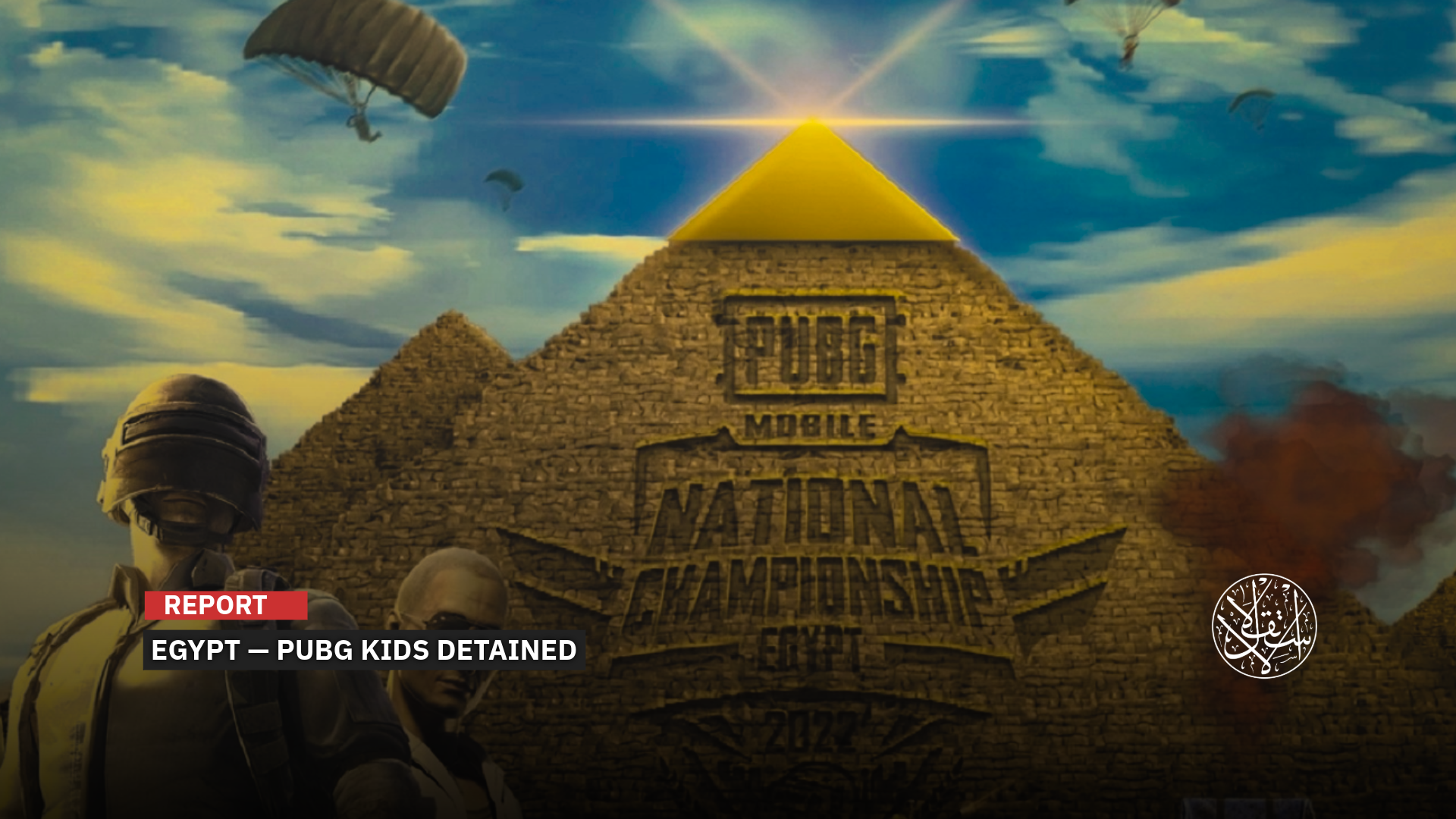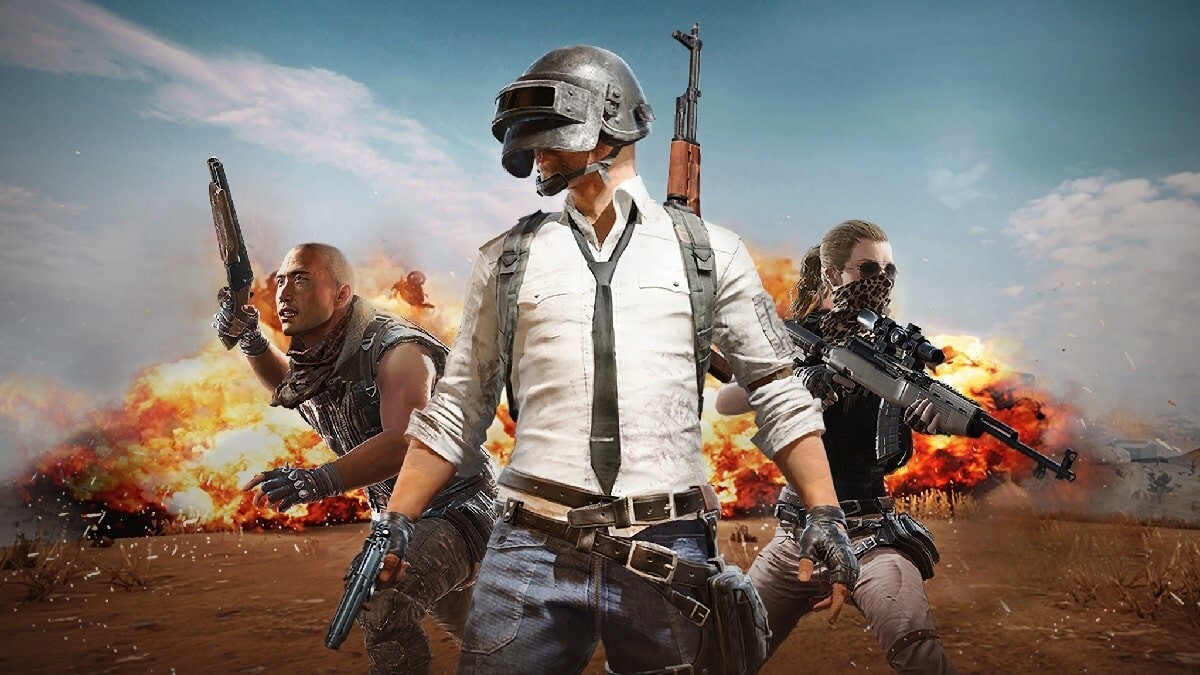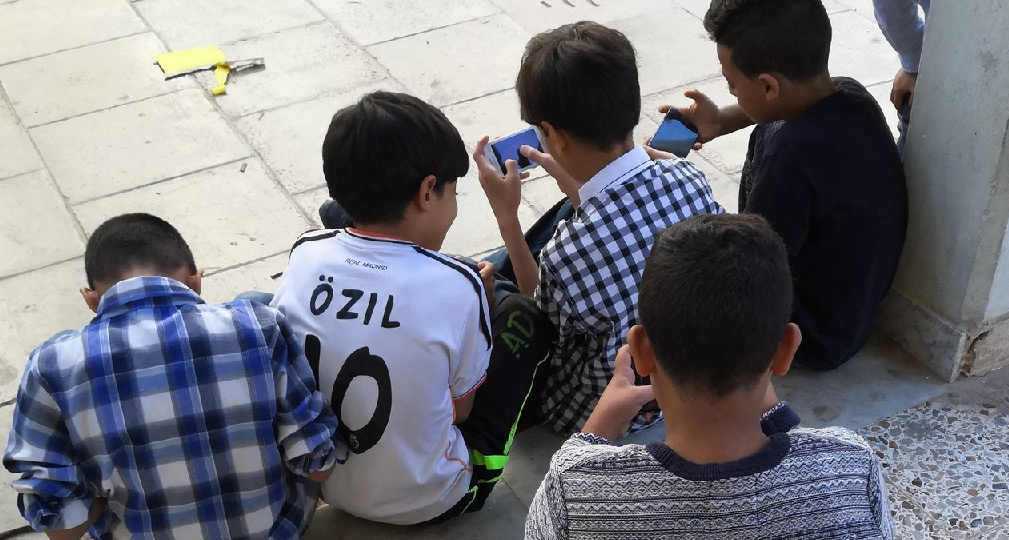From Playground to Interrogation Room: Why Is Egypt Arresting PUBG Kids?

The regime has arrested at least 15 children aged between 12 and 17.
In a startling twist, Egyptian lawyers and rights groups report a surge in children as young as 11 being hauled before State Security prosecutors—accused of nothing more than playing PUBG online.
What began as a global hit for virtual combat has, according to 15 rights groups, become a pretext for Egyptian regime forces to raid homes and detain children mid-game. PUBG, launched in 2017 as a multiplayer survival contest, now finds its young players battling real-world crackdowns.
Following complaints from several families about police arresting their children at home while they were playing, the 15 rights groups issued a statement confirming that security forces were indeed targeting minors for simply playing online games.

So What’s the Story?
Fifteen-year-old Emad (a pseudonym) was playing PUBG on his phone as usual with strangers online when police suddenly stormed his home, broke in violently, and arrested him.
His family was stunned. The officers told them nothing, only muttering that he had “done something wrong.” But at the station and later at the prosecution office, they were told their son was accused of links to a “terrorist political organization” and would be imprisoned.
Despite being a child, Emad was interrogated on charges he knew nothing about. Prosecutors leveled ready-made accusations of joining a terrorist group, sent him to a juvenile care facility, and barred his family from contacting him, according to a lawyer who spoke anonymously to Al-Estiklal.
Emad’s case is not unique. Lawyers say around 15 children, possibly more, have been detained in similar circumstances because of PUBG.
The rights group Jewar documented multiple cases from family testimonies, confirming that at least 15 minors aged 12 to 17 had been arrested and accused of belonging to a terrorist organization based on their online activity.
In all instances, children were taken from their homes without court orders. Many were forcibly disappeared for days or even months before reappearing at the prosecution with the same sweeping terrorism charges, without any solid evidence.
One 13-year-old was detained in January 2025 after refusing to interact with strangers on PUBG. He disappeared for nearly three months before resurfacing in April and is now held in a juvenile care center in Giza.
Another case involves 17-year-old Mohamed Emad, a U.S. citizen from Baltimore, who was arrested in August 2024 while visiting Egypt. He had been approached in the game with offers of digital rewards in exchange for posting content deemed anti-regime.
He disappeared for ten days, then reappeared in police custody in al-Qalyubia, held with adults despite being a minor. Mohamed has now spent nearly a year in pretrial detention, denied medical care despite suffering from asthma.
On August 28, 2025, fifteen human rights groups issued a joint statement demanding the release of detainees, including thirteen children who remain behind bars.
The signatories, a mix of local and international organizations such as the Project on Middle East Democracy, the World Organization Against Torture, and the Egyptian Initiative for Personal Rights, condemned Egyptian regime forces for targeting children simply for playing online games.
They spoke of “grave human rights violations” and accused police and prosecutors of breaching both Egyptian law and international standards through arbitrary arrests, enforced disappearances, denial of due process, and subjecting minors to torture and ill-treatment in detention.
According to the statement, at least fifteen children aged 12 to 17 were detained and charged with belonging to a terrorist group based solely on their online gaming activity.
The groups called for the immediate release of all detained minors and an independent investigation into the abuses, describing the arrests as “a gross abuse of power that demands accountability.”
They also accused Egyptian security agencies of luring minors through online platforms, particularly PUBG, by offering in-game rewards in exchange for joining chat groups. Children were then asked to share content on social media, later twisted into claims of extremist affiliation.
The statement highlighted a disturbing pattern: raids on homes without warrants, enforced disappearances lasting days or months, and the repeated use of the same vague charge, “belonging to a terrorist organization,” without evidence. Many children were not even brought before courts for detention renewal hearings, stripping them of basic procedural rights.

Why Detained?
As reports of children being detained mounted, two main explanations emerged. The first suggested that minors were tricked into posting criticism of the head of the Egyptian regime, Abdel Fattah el-Sisi, as part of the game, lured by promises of in-game rewards.
The second pointed to Egyptian security forces themselves as the instigators, trapping children through online platforms by offering gaming incentives in exchange for joining chat groups and sharing specific content on social media, later reframed as links to extremist groups.
Rights lawyer Sara Mohamed wrote on X that State Security had effectively “set a trap” for children while they played PUBG. She explained that the game requires players to coordinate in teams, often chatting with strangers from different countries. These strangers would offer coins or points to entice kids to join their teams but then demand something in return: posting criticism of Sisi, voicing solidarity with Gaza, calling for border openings, or sometimes even making vaguely defined “extremist” statements.
Although many of the children blocked these accounts out of fear, they were still arrested, disappeared, interrogated under torture, and held in detention with their custody extended in absentia, according to the rights advocate.
Lawyers defending the detained children told prosecutors repeatedly that the minors were “victims of entrapment,” but neither the police nor the prosecution acknowledged it.
Some adult inmates who encountered the children inside prisons confirmed to rights groups that the boys had no political identity, barely understood what was happening, and saw it all as “a joke,” making them victims of a security setup, not political actors.
A cybersecurity expert told Al-Estiklal that Egyptian security agencies constantly monitor social platforms and potential hostile hacking attempts. He suggested that the arrests may have stemmed from detecting children who, often jokingly and without intent, shared what authorities deemed anti-regime messages through PUBG.
Instead of targeting those who originally spread the satirical content, many of whom are outside Egypt or unknown, security forces punished the children themselves. Rights groups’ claims that the minors were “hunted” by security forces may also indicate they were exploited to track the originators of critical content.
The expert stressed that these cases should have been treated strictly as children’s issues, not as political acts, and that their families should have been warned instead of subjecting the minors to raids, detention, and a damaged future.
The Egyptian outlet Almasry Almawkef reported that while authorities uncovered these activities during counter-extremism surveillance, they chose to treat the minors as adults, ignoring their lack of awareness of the political or security consequences of what they were asked to post online.
Egypt’s Child Law No. 12 of 1996, amended by Law No. 126 of 2008, makes it clear in Article 112: “Children may not be detained or imprisoned with adults in the same place.”
Before the latest campaign against kids playing PUBG, Egypt had already waged a moral and religious crackdown on the game. In 2018, a student murdered his teacher allegedly under its influence, and in 2020, a boy took his own life.
On March 17, 2021, members of parliament’s Chamber of Information Technology and Telecommunication announced plans to discuss banning the game altogether.
Religious institutions also weighed in. On June 6, 2020, al-Azhar and Egypt’s Dar al-Ifta condemned PUBG after a controversial update introduced “bowing to idols,” a feature that was later removed following backlash.
Al-Azhar Fatwa Global Center warned specifically against PUBG Mobile, citing the Sanhok map, where players were required to kneel before an idol to unlock weapons and gear.
Sources
- Statement: Egyptian Authorities Must Immediately Stop Targeting Children for Their Online Gaming Activities [Arabic]
- Rights Groups Document 15 Children Detained and Accused of Terrorism After Playing PUBG [Arabic]
- PUBG Idols: Al-Azhar Declares the Game Forbidden, and Egypt’s Dar al-Ifta Thanks It for the Apology [Arabic]











